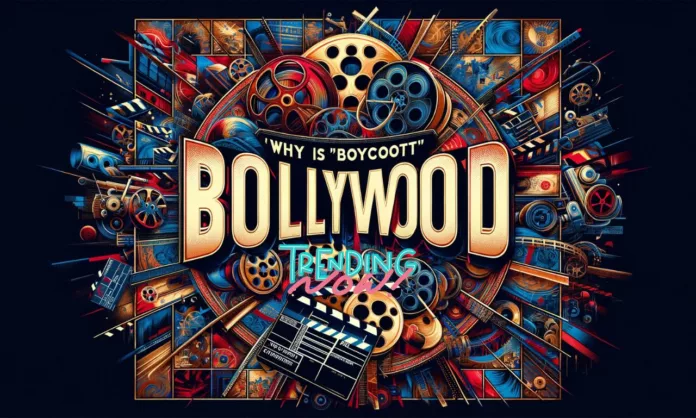The trend of boycotting Bollywood, which significantly intensified in 2023, represents a multifaceted movement influenced by a range of factors and events. This movement represents a significant shift in the audience’s perception and reception of Bollywood productions.
Table of Contents
The Trigger: Sushant Singh Rajput’s Death
The untimely death of actor Sushant Singh Rajput in 2020 was a major catalyst for the trend. Rajput’s alleged suicide raised numerous questions and conspiracy theories, focusing on issues like nepotism, cliques within Bollywood, and the mental health struggles of actors. This event significantly changed public sentiment, especially among his fans, who felt that Rajput’s talent was undermined due to the industry’s insider culture.
Nepotism and Insider Culture
The issue of nepotism, where industry insiders are favored over outsiders, became a prominent part of the discourse following Rajput’s death. High-profile industry figures were accused of perpetuating this insider culture, which was seen as detrimental to talented individuals who lacked industry connections. Movies such as “Sadak 2” encountered backlash and were viewed as symbolic of the prevailing nepotism within the film industry.
Controversial Statements and Actions by Celebrities
The trend also stems from various controversial statements or actions made by Bollywood actors, directors, or producers. These incidents, often highlighted through social media, have been perceived as offensive or disrespectful to certain communities or individuals. Calls for boycotts serve as a form of protest and a means to hold individuals accountable for their actions and statements.
Portrayal of Religion and Ideological Bias
Some audience members have expressed dissatisfaction with the portrayal of religious and cultural themes in Bollywood films. Movies like “Shamshera” and “Pathaan” faced backlash for their perceived misrepresentation of Hindu iconography and promotion of Islamist ideologies. This aspect of the trend reflects a broader discontent with the industry’s treatment of cultural and religious subjects.
The Social Media Effect
The power of social media in amplifying the boycott trend cannot be overstated. Hashtags like #BoycottBollywood became rallying points for various groups, including those against nepotism and right-wing users accusing Bollywood of moving away from ‘Hindu values’. This unified movement on the internet has markedly affected the box office success of major film releases.
Impact on Bollywood
The boycott trend has notably affected Bollywood’s commercial success. High-profile movies featuring renowned actors, like “Laal Singh Chaddha” and “Vikram Vedha,” have not succeeded in drawing audiences to cinemas, marking a significant shift from previous patterns where the allure of star-studded casts was a key factor in attracting viewers.
Concluding Thoughts
The “Boycott Bollywood” trend is a multifaceted movement reflecting deeper societal and cultural issues. It highlights the growing influence of social media in shaping public opinion and the increasing demand for accountability and transparency in the entertainment industry. In facing these challenges, Bollywood might have to evolve and confront these foundational problems to re-establish a connection with its audience.

